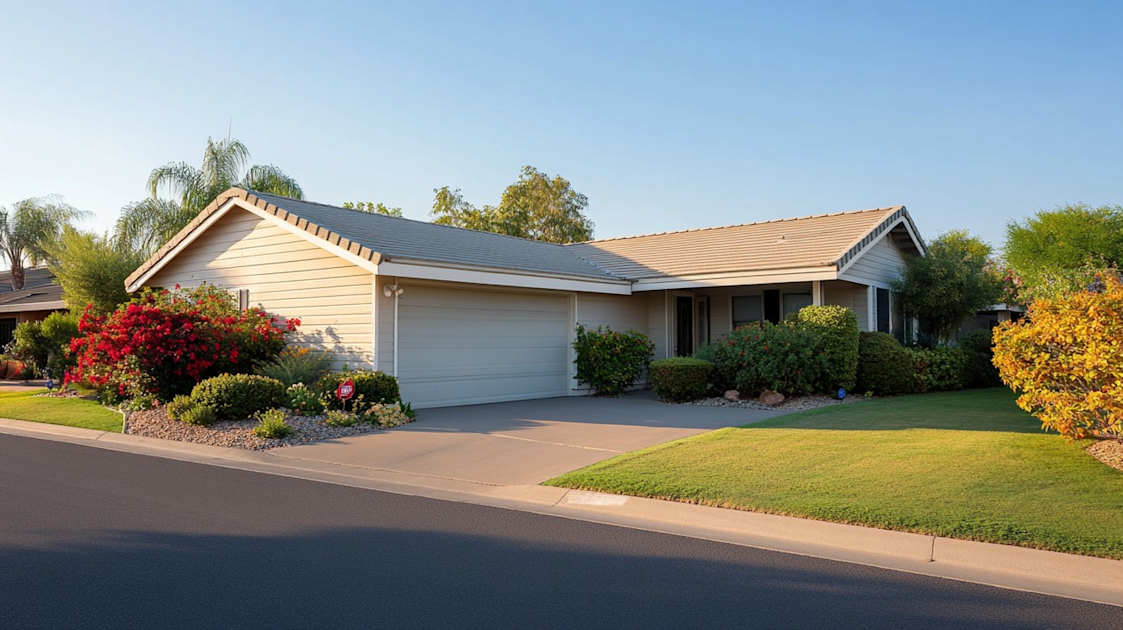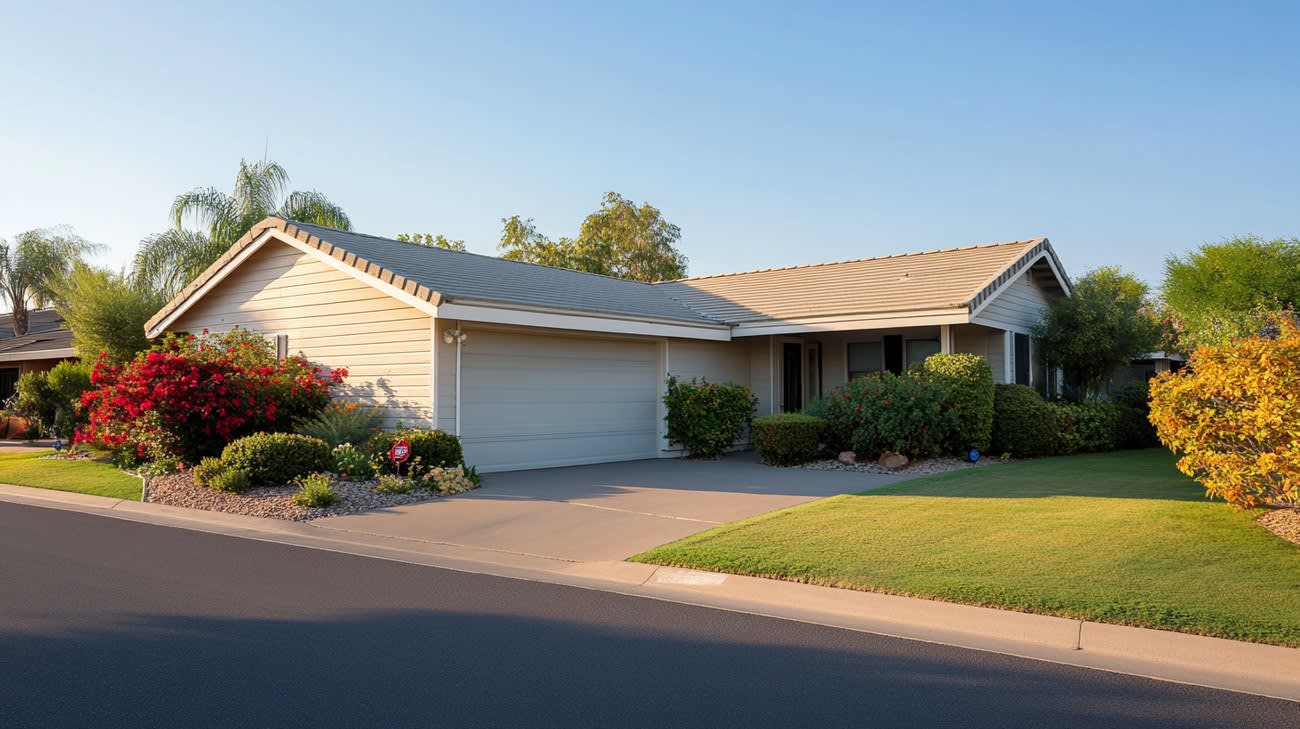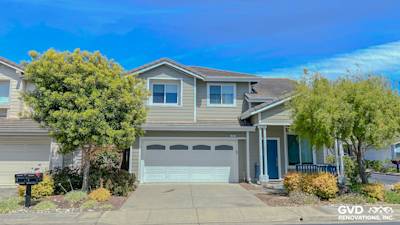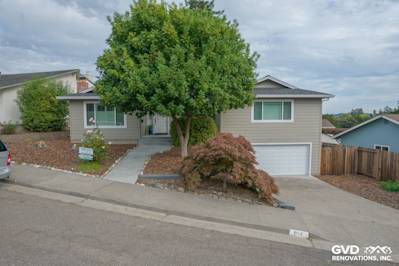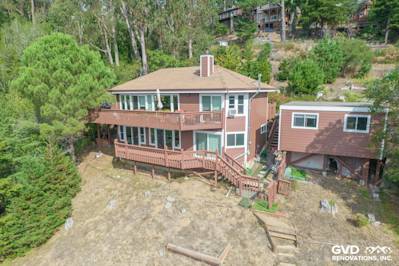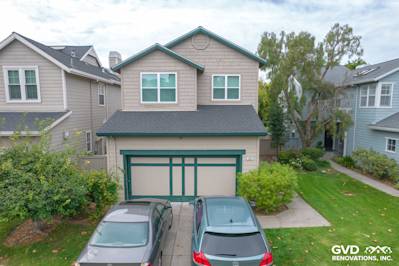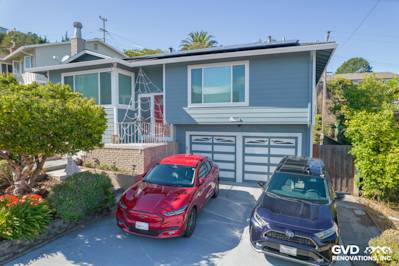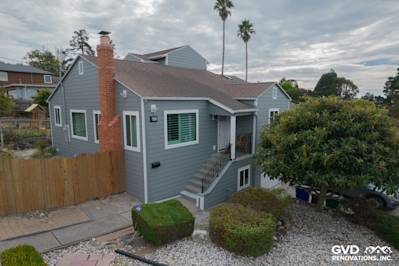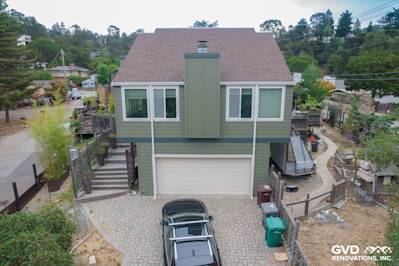Masonite siding, an appealing choice for homeowners globally, has been creating ripples in the world of home building for quite some time. Predominantly known for its cost-effectiveness, durability, and aesthetic appeal, Masonite siding tends to stand apart.
In this blog post, we intend to provide an in-depth analysis of Masonite siding- what it is, its production process, various types, and how to maintain and repair it. Let’s delve in for a moment right into this versatile housing material.
What is Masonite siding?
Before we dive into the nuances, let’s start off at the beginning, by defining what Masonite siding is.
Masonite siding is a type of synthetic siding product, crafted from wood fibers, wax, and resins. Named after the inventor William H. Mason, 'Masonite' is a brand name that has come to stand for the entire category of hardboard and engineered wood siding products. This type of siding is best known for imitating the feel and look of traditional wood but with improved resilience and longevity.
The Production of Masonite Siding: An Overview
To understand the durability and strength that Masonite siding offers, it’s essential to cast a glance over its unique manufacturing process:
Wood-Chipping: The process initiates by chipping wood into tiny particles.
Binding Material: Subsequently, the wood fragments are bound together using a particular resin. This resin acts as a binding agent, providing enhanced stability and strength to the Masonite siding.
Steam Injection: The wood and resin mixture is then injected with steam at high pressure. This process, popularly known as Mason's 'exploding' technique, helps the resin thoroughly permeate the wood particles, resulting in a closely-knit board.
Exploring Types of Masonite Siding
Masonite siding provides a multitude of options to homeowners when it comes to aesthetics and functionality. Here are the major types:
Clapboard Masonite Siding: This is the most common type of Masonite siding used today, designed to give an elegant, traditional wooden look.
Sheet Masonite Siding: This type of siding comes in large, flat sheets. It's a good fit for people who prefer a smooth and uniform exterior.
Shake Masonite Siding: This type features an attractive shingle pattern, often used to cover entire walls or as an accent on certain walls.
Maintaining your Masonite Siding
Regular upkeep can help your Masonite siding last longer and look better. Here are some pointers:
- Regularly inspect your siding for signs of damage such as peeling, swelling, or cracking.
- Consider painting your Masonite siding every 5-6 years to keep it looking fresh and to protect it from the elements.
- Clean the siding at least once a year. Use a regular garden hose or a low-pressure power washer to remove dirt and debris.
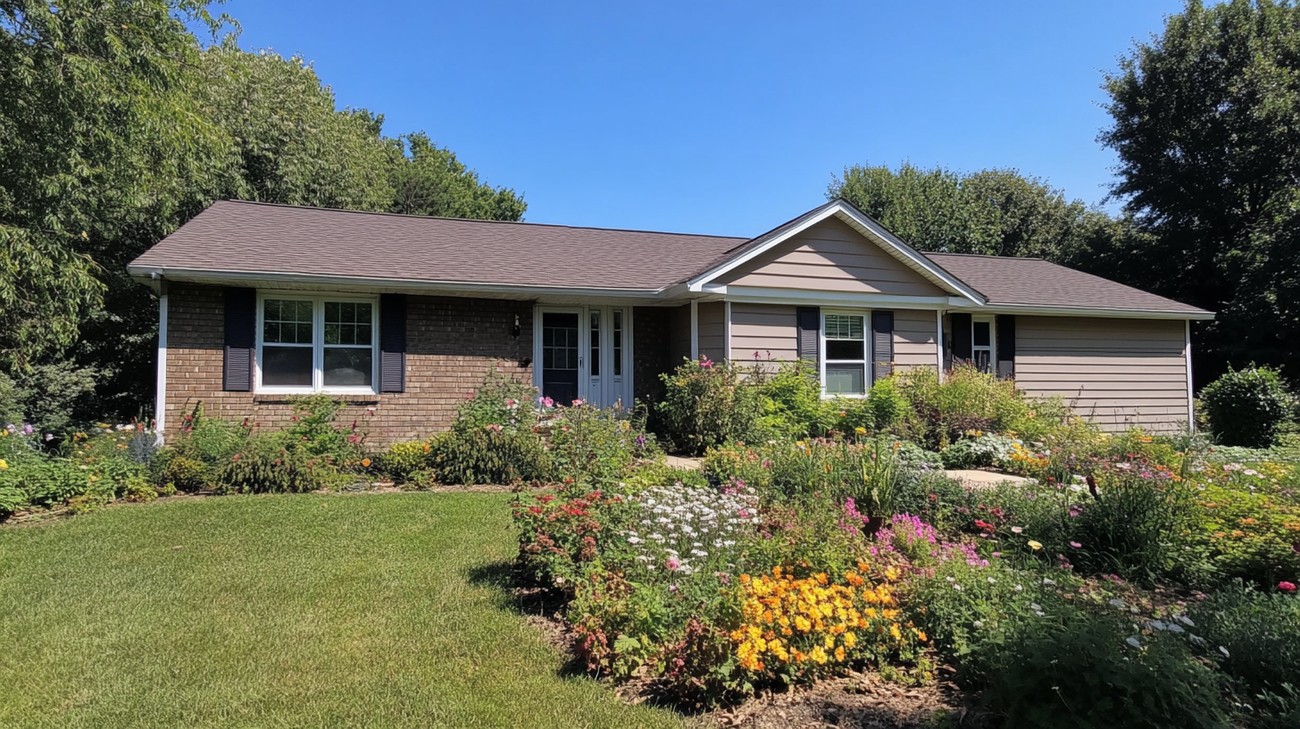
Frequently Asked Questions about Masonite Siding
What is Masonite siding made of?
Masonite siding is made from wood fibers, wax, and resin. The mixture is then heat-pressed into boards and painted to look like authentic wood. The result is a highly durable material that can withstand harsh outdoor conditions, while providing an attractive finish for your home.
How is Masonite siding installed?
Masonite siding installation involves cutting the boards to the desired size, spreading a weather-resistant barrier on your home's exterior, and then fastening the Masonite pieces securely with nails. It's essential to hire a professional installer since improper installation can lead to moisture ingress damage, significantly reducing the lifespan of your siding.
How should Masonite siding be maintained?
Regular maintenance can prolong the lifespan of your Masonite siding. This involves keeping the siding clean from dirt, dust, and mildew. A gentle scrub and rinse with a low-pressure water source are usually sufficient. Check for any signs of damage or wear regularly, replacing or repairing as necessary. Finally, repainting every few years can keep the siding looking fresh and vibrant.
How long does Masonite siding last?
The lifespan of Masonite siding can vary based on the level of maintenance and the specific environmental conditions it's exposed to. On average, well-maintained Masonite siding can last between 25 to 40 years.
Can Masonite siding withstand harsh weather conditions?
Yes, Masonite siding is known for its durability and resistance to harsh weather conditions. It is designed to withstand heavy rains, wind, and snow. However, proper installation and regular maintenance are essential to prevent moisture ingress and to maximize the siding's lifespan.
Does Masonite siding come in different styles and colors?
Absolutely, Masonite siding is available in various styles, including lap, panels, and shingles to mimic the appearance of traditional wood siding. Moreover, it's available in a wide array of colors suitable for any design aesthetic. This broad range of options allows homeowners to customize their home's exterior according to their taste and preferences.
How does Masonite siding compare to vinyl siding?
While both siding options have their advantages, Masonite siding is often praised for its more natural wood-like appearance compared to vinyl. It’s also more durable and resistant to dents and scratches. However, vinyl siding requires less maintenance than Masonite.
Can you paint Masonite siding?
Yes, Masonite siding can be painted to change its color or freshen up its look. Remember to apply a layer of primer first to ensure the paint adheres properly. It's recommended to use high-quality, 100% acrylic latex paint.
What are some potential issues with Masonite siding?
Masonite siding, despite its durability, isn't immune to problems. It can be susceptible to moisture damage if not properly installed or maintained, causing it to warp, swell, or rot. Frequent inspections and timely repairs can help prevent these issues.

Pros of Masonite Siding
Aesthetic Appeal
Masonite siding can adapt to various architectural structures with an extraordinary aesthetic appeal. It has the capability to imitate the appearances of other materials, including wood, stucco, and stone. However, compared to these materials, Masonite sidings require less maintenance and are a cost-effective option. Due to its flexibility and variations in style, it caters to a broad range of aesthetics that can blend with any home design.
Affordability
Masonite siding scores high on the affordability meter. It is cheaper than most other siding materials on the market. Given the tight budgets people can have when building or renovating homes, this siding option's affordability is indeed a significant advantage.
Easy Installation
The lightweight nature of Masonite siding makes it an easy material to install, whether on a DIY basis or professionally. If you hire professionals, the installation is quicker and therefore less expensive than installing heavier siding materials.
Durability
Masonite sidings are incredibly durable and can withstand many of the common issues that other siding materials face. This includes being highly resistant to insects and rot, which can significantly reduce the lifespan of your siding if not addressed.
Cons of Masonite Siding
High Maintenance
Despite its durability, Masonite sidings require regular maintenance to keep it in good shape and prolong its life. The surface needs to be sealed adequately to prevent any moisture infiltration, which can warp the siding and promote mold growth. Additionally, the siding might need repainting to prevent chipping and peeling over time.
Vulnerability to Water Damage
Masonite siding is much more susceptible to water damage compared to many other siding materials. If not properly maintained, water can seep into the siding causing it to swell, rot or warp. This does not only affect the aesthetics but can also compromise the structural integrity of the home.
Limited Insulation
Unlike other types of siding materials, Masonite does not offer excellent insulation properties. As a result, homeowners might find themselves investing more in heating and cooling system to maintain comfortable temperatures in their homes.
Potential for Defects
In the past, there have been numerous complaints about defects in Masonite siding, resulting in a massive class-action lawsuit. Some of the reported issues included premature deterioration, swelling, and disintegration of the sidings. In light of this, homeowners need to be cautious when choosing Masonite siding. Always ensure to buy from reputable manufacturers and installers.
Not Environmentally Friendly
The manufacturing process of Masonite siding involves the use of formaldehyde, a chemical that is harmful to the environment and can cause health issues to humans over time. The emissions during production are also not good for the environment.

Myths and Misconceptions about Masonite Siding
When it comes to Masonite siding, there are a variety of myths and misconceptions out there. Unfortunately, these misconceptions can lead individuals to make ill-informed decisions about their home siding options. It's important, therefore, to dispel these misunderstandings and provide accurate information about Masonite siding.
Myth 1: Masonite Siding Is Rot-Proof
Fact: Masonite Siding Is Not Completely Resistant to Rot
Some people believe that Masonite siding is completely immune to rot. However, that's not exactly true. While Masonite siding does have a level of resistance to rot, it's in no way completely rot-proof. Like most wood-based products, Masonite siding can succumb to the effects of prolonged exposure to moisture. If not properly maintained, Masonite siding can become prone to water damage and rot.
Myth 2: Masonite Siding Is Indestructible
Fact: Moisture Damage Can Affect the Durability of Masonite Siding
A common misconception is that Masonite siding is entirely indestructible. However, Masonite siding, much like any other type of siding, is susceptible to damage. In fact, one of the most significant issues with Masonite siding is its vulnerability to damage caused by moisture. Prolonged exposure to heavy rains without proper water-resistant treatments can weaken the siding, leading to warping, swelling, and eventually deterioration.
Myth 3: Masonite Siding Won't Fade or Discolor
Fact: Masonite Siding Can Fade and Discolor Over Time
Another common myth is that Masonite siding is resistant to discoloration and fading. Although Masonite siding is hardier and tends to hold its color longer than some other types of siding, it is not entirely immune to sunlight exposure and the elements. Over time, continual exposure to the sun can cause Masonite siding to fade and discolor. Therefore, regular maintenance, such as painting and sealing, is necessary to maintain its vibrant color and shine.
Myth 4: Masonite Siding Require Minimal Maintenance
Fact: Masonite Siding Needs Regular Maintenance to Last Long
Many homeowners believe that once they have installed Masonite siding, they can simply forget about it. This is a dangerous misconception. While Masonite siding is generally known to be low-maintenance compared to other wooden siding options, it still requires regular care to ensure it remains durable and aesthetically pleasing. This includes power washing, regular painting or staining, and immediate repairs for any visible damages.
Myth 5: Masonite Siding Is Inferior to Other Siding Options
Fact: Masonite Siding Has Many Admirable Qualities
Finally, some folks might believe that Masonite siding is vastly inferior to other siding materials such as vinyl or fiber cement. However, this notion isn't accurate. Masonite siding is appreciated for its stylish and classic wooden appearance, ability to retain paint colors, and its affordability compared to other types of siding materials. It all depends on personal preference and specific needs - there's no one-size-fits-all answer when it comes to siding materials.
Armed with the correct understanding, homeowners can make the right choice when deciding whether Masonite siding is suitable for their needs. Remember, misconceptions can lead to ill-informed decisions, so always do thorough research before making a choice.
Summary
It's clear that Masonite siding offers a lot of perks when stacking up against other siding options. This type of siding is known for both its durability and visual appeal. If you're willing to spend a little extra for an aesthetic upgrade, it's an excellent option. More so, the hardboard composite material that makes up Masonite siding offers top-notch resistance against many elements that may harm its finish.
Its maintenance requires some time and extra care, sure, but many homeowners find that the trade-off is worth it for the payout of a beautiful house exterior. The longevity of Masonite siding is largely connected to the care and maintenance applied to it. Regular inspections and immediate repairs can help extend its lifespan, making your investment worth every penny.
Uncertain if Masonite siding is for you? The best approach would be to consider the features of your home, your budget, your style preferences, and your willingness to carry out regular upkeep. If properly maintained, this siding option can offer you a distinctive look and long-lasting durability, defending your home against many of the challenges thrown its way. After all, the exterior of your home should not only protect but also reflect your style and Masonite siding manages to tick both boxes effectively.
About Bay Area Siding Company
Bay Area Siding Company is your go-to crew for top-tier siding installation and repairs in sunny Bay Area, California. Born and raised in the vibrant heart of Golden State, we pride ourselves on delivering unbeatable quality, value and service to our friends and neighbors throughout the community. Our committed team brings decades of skill and expertise to your doorstep, ensuring your home shines brightly on the block. Whether you're craving a fresh new look, or need a bit of a touch-up, we've got you covered. At Bay Area Siding Company, you're not just a client, you're family.

